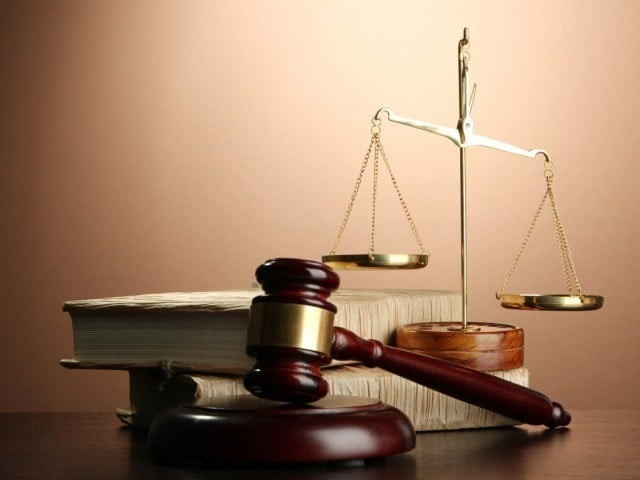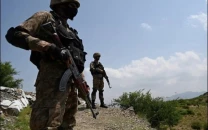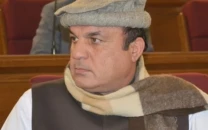Sedition law part of colonial legacy: legal experts
Bar representatives blame PPP, PML-N for not annulling Section 124-A of PPC

An allegedly private individual on Monday registered a sedition case against former prime minister Nawaz Sharif and almost the entire leadership of the biggest opposition party, the PML-N, sparking a debate about the misuse of the law that dates back to the colonial era.
Section 124-A of the Pakistan Penal Code (PPC) is commonly known as the sedition law.
It says: “Whoever by words, either spoken or written, or by signs, or by visible representation, or otherwise, brings or attempts to bring into hatred or contempt, or excites or attempts to excite disaffection towards, the federal or provincial government established by law shall be punished with imprisonment for life to which fine may be added, or with imprisonment which may extend to three years, to which fine may be added, or with fine.”
Talking with reference to the first information report (FIR) – which on Monday accused the PML-N leaders of sedition and which the PTI government disowned within hours after its registration – some key representatives of the superior bars said Section 124-A PPC should be completely abolished.
They also blamed both the major opposition parties – the PPP and the PML-N – for not abolishing the sedition law while they were in power despite the fact that it is mostly the politicians who have become a victim of the law.
Interestingly, various petitions – filed against the law – are also pending in different courts.
In February, the Lahore High Court (LHC) issued notices to the federal and provincial governments on a petition that claimed that Section 124-A of the PPC was against the fundamental rights of the citizens as enshrined in the Constitution.
The petition was filed by Ammar Ali Jan, a student rights activist, who had also questioned the legality of an FIR lodged against him and others mainly under the impugned section of the PPC for holding “Student Solidarity March” on Lahore’s Mall Road.
The Pakistan Bar Council (PBC) Vice Chairman Abid Saqi had appeared on behalf of the petitioner. However, the petition is awaiting its second hearing due to coronavirus pandemic.
Saqi told The Express Tribune that they will move an application for early hearing of the petition. However, the federal government has yet to file reply in this matter, he added.
A senior government functionary revealed that the Islamabad High Court (IHC) has already regulated this provision by declaring that only the federal or provincial governments can invoke the sedition law.
“The government may further regulate this provision but there is no chance that it will agree to abolish Section 124-A of the PPC in the prevailing situation,” he added.
In June, PPP leader Raza Rabbani had moved the Pakistan Penal Code (Amendment) Bill, 2020 in the Senate, seeking to abolish the Section 124-A. However, the PTI led federal government had opposed the bill. Later, the bill was referred to a standing committee.
Taking the floor, Minister of State for Parliamentary Affairs Ali Muhammad Khan had then said no country in the world gives absolute freedom of expression.
“We cannot abolish the law that protects the security and sanctity of the country.
“If this law is abolished, some forces which are waging a fifth-generation war against Pakistan would get an opportunity to create chaos,” he said.
However, he had admitted that this law can be amended to make it more comprehensive.
Renowned lawyer Salahuddin Ahmed said Section 124-A is a draconian law which is clearly an unreasonable restriction on the freedom of speech and thus violates Article 19 of the Constitution.
Lawyer Umer Gilani said while the state can, and perhaps should, criminalize those who promote violent overthrow of a government, there can be no legal justification for criminalizing political dissent.
"The language of 124-A fails to make this distinction. It criminalizes political dissent. It is a remnant of the colonial era, when we had neither democracy nor fundamental rights."
Gilani states the Supreme Court of India grappled with this issue in 1962 AIR 955. But the Supreme Court of Pakistan has yet to give a definitive ruling on the issue.
Recently, the IHC noted that it is for the parliament to weed out from the statute books those draconian offences and powers which have a colonial legacy and are inconsistent with the fundamental rights guaranteed under the Constitution.
“The offence of ‘sedition’ under section 124-A of the PPC, 1860 definitely requires to be considered by the Majlis-e-Shoora (Parliament) having regard to the constitutionally guaranteed fundamental rights of free speech and the freedom of assembly and association,” it noted.



















COMMENTS
Comments are moderated and generally will be posted if they are on-topic and not abusive.
For more information, please see our Comments FAQ